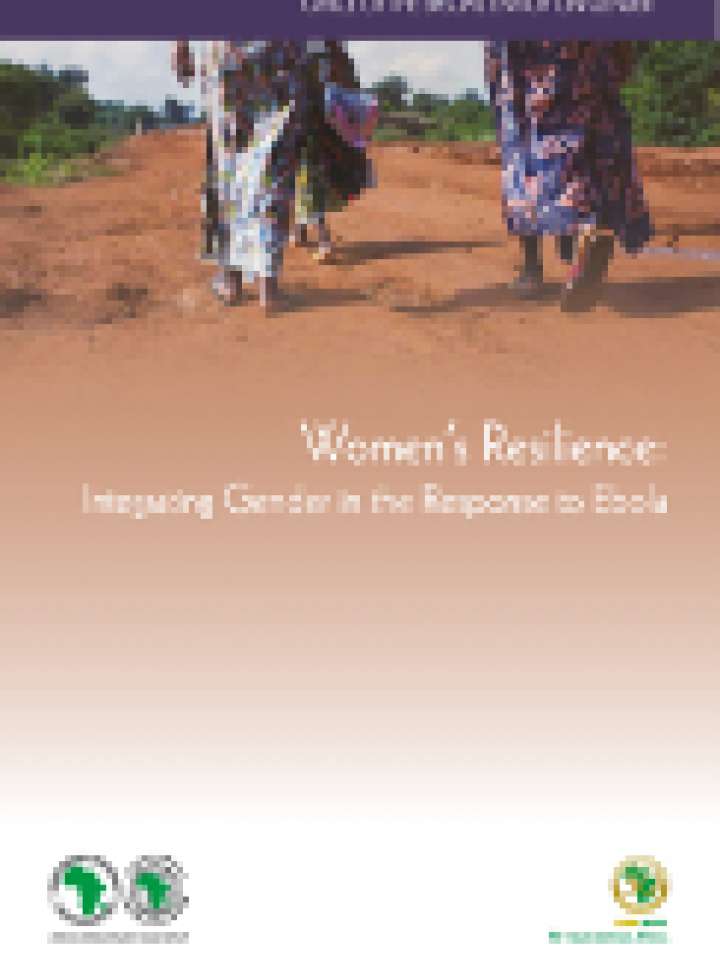Women’s resilience: integrating gender in the response to Ebola
This report investigates the futility of trying to build resilience to Ebola and future infectious disease shocks in households and communities without also addressing systemic gender inequality. Particular attention is paid to women’s labour force participation (or lack thereof), as well as their access to financial services, land tenure, healthcare, and decision-making in both the home and nation.
The report notes that the Ebola crisis in Guinea, Liberia and Sierra Leone has disproportionately impacted women, and has impacted even more women who fall within special categories of vulnerable groups, such as (mentally and physically) disabled or elderly women. The gender effects of Ebola in the region are influenced by the skills and strategies used prior to the outbreak, and the mechanisms individuals used to cope and adapt differ. It highlights that the lack of gender disaggregated data should not limit interventions, and that all efforts must be made to collect the relevant information to combat the inequalities underscored by disease outbreaks now. The insights contained in this report are not only invaluable for dealing with other epidemics, but may also assist in the prevention of further outbreaks.
Explore further
